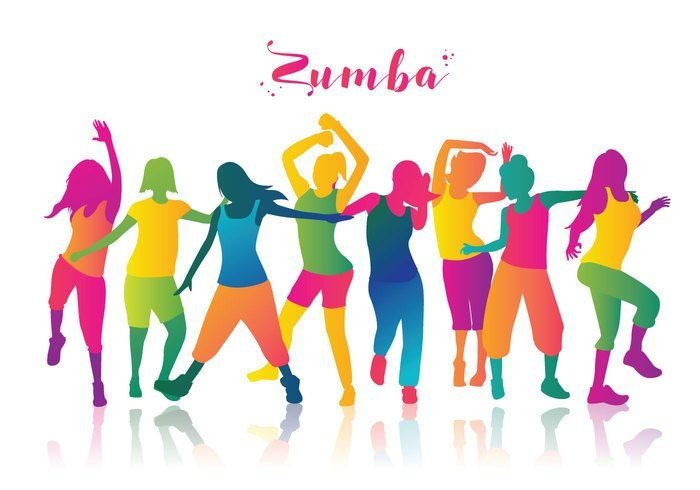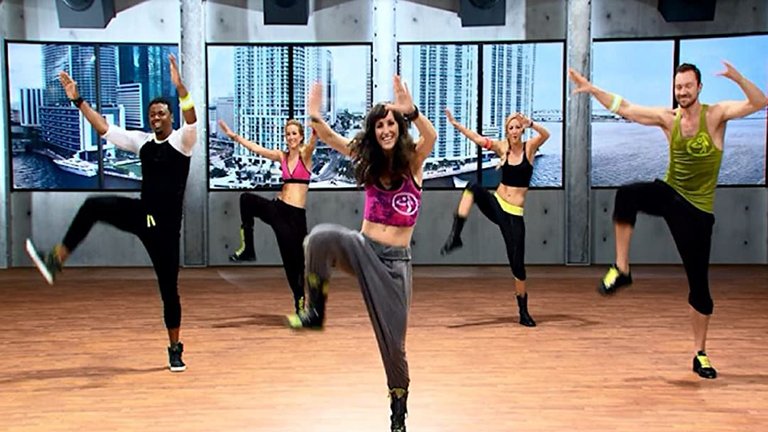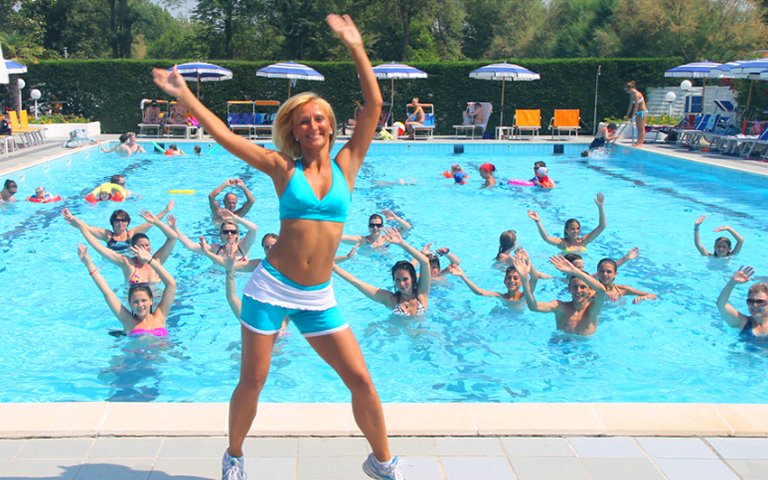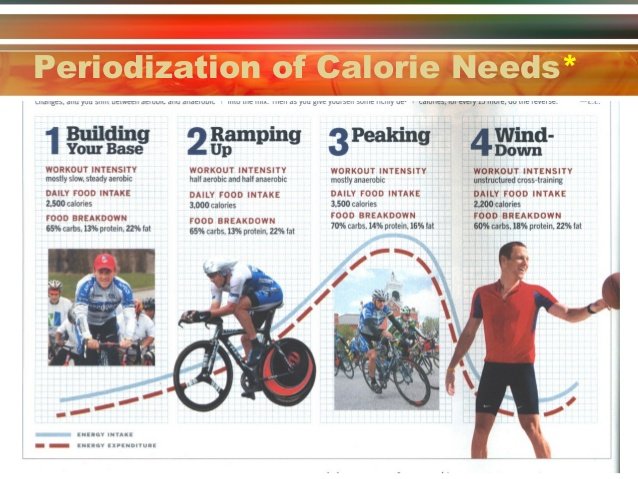Are Zumba A Sports | Benefits of Zumba
Are Zumba A Sports | Benefits of Zumba

Sports activities are recommended for almost everyone. A person who is lacking in exercise has a greater risk factor of developing cardiovascular diseases and acquired metabolic disorders than being overweight. Without exercise, there is a risk of obesity, high blood pressure, poor posture, and even difficulty concentrating. Sport promotes a sense of community and communicative skills as well as team spirit, ambition, and self-esteem. Sporty people are generally more balanced, healthier.
If a person has high cholesterol and blood sugar levels, he/she should choose sports that involve regular movement and keep the pulse and breathing at a constant level. The following are the suitable exercises:
- Jogging
- Nordic walking
- Biking
- Swimming
- Hiking
- Dancing
- Rowing
Should avoid sports with high-performance peaks or irregular movements such as basketball, athletics, or martial arts, as this can quickly lead to hypoglycemia in the body. Endurance exercise, on the other hand, not only makes the pounds drop faster but also has a positive effect on fat metabolism. Those who do 30 minutes of sport a day protect the heart and blood vessels. In contrast, lack of exercise has a higher rate of developing health risk.

Is Zumba a sport?
Before answering the question, let us simplify what sports are. Sport is a form of human activity oriented towards playful self-development and the striving for achievement, which serve physical and mental mobility, especially in the field of physical exercises. These activities are carried out for their own sake and for the joy of overcoming difficulties. The playful movement for self-improvement without striving for competition usually unfolds individually.
Sport is an extremely colorful social phenomenon. It can be found all over the world and the interest it generates seems to be extensive. People who actively practice it can pursue a variety of goals with it. Being with other people, experiencing one's physical abilities and skills as personal achievement is no less important. Those who are more passive about sport pursue no less diverse goals through sport.
Zumba is a dance workout that combines elements of dance with aerobic movements. The dance is much easier to learn because there is no complicated choreography, and the sequence of steps and movements are simple and often intuitive. Zumba is not about performance, it's about having fun.

Kinds of Zumba
Like sports, Zumba is suitable for almost everyone, no matter how fit or how old you are. To be able to cater to the needs of certain groups of people particularly well, there are other forms besides the normal Zumba workout that are specially tailored to children, the elderly, or people with joint problems.
Zumba Gold. Its' the simplest form of Zumba and is particularly suitable for older people, but also fitness beginners and people with physical limitations. With this kind of Zumba, older people benefit not only from the adequate load but also from the fact that coordination is trained through dance movements.
Zumbatomic. This is a dance workout specially tailored for children aged four to twelve. Primarily promotes balance and coordination in children, but also their creativity and memory.
Aqua Zumba. A form of aerobis that is performed in water. Since the weight of the body is significantly reduced in the water, it is especially recommended for people who have problems with their joints. Since the resistance in water is around four times as high as on land, strength and endurance are still intensively trained in Aqua Zumba.
Zumba Circuit. Works on the principle of circuit training. Different stations are set up at which different exercises are carried out over a certain period of time. Then it changes to the next station.

Health Benefits of Zumba
Zumba is primarily endurance training that gets the cardiovascular system going. The various movements also train coordination and specific muscle groups are strengthened in a targeted manner. It generally has a positive effect on our health. But some people should better forego the pleasure of dancing.
Zumba places complex demands on our musculoskeletal system. The flexible movements when dancing not only address the large muscle groups but also smaller muscle groups, which are particularly important for the stabilization of the trunk. Earlier in nature, people sometimes performed movements similar to those in Zumba. Today our movements have become much smoother due to long periods of sitting at our desks. The trunk area is only rarely subjected to flexible loads. That is why the movements in Zumba are well suited to prevent back pain.
The required energy for sports and exercises
Many people use exercise to effectively lose weight or feel more comfortable in general. Often this is even one of the main topics when talking about sport or fitness in any form. An athlete who wants to lose weight is best trained in such a way that he burns more energy than he consumes during the day.
The differences between individual sports can depend on various factors. Consumption is higher when running than when swimming because when swimming, your body weight is almost entirely carried by the water. However, with every activity, the energy requirement increases with increased intensity.

As the muscle mass increases, the basal metabolic rate increases so that the muscle can work optimally. Fat is a very good source of energy, although too much of it is more of a burden than good in competition. During a marathon, the runner with good endurance needs around 2500 to 3000 kcal of energy. This energy should also be available to the body so that it can develop a good performance. Carbohydrates, protein, and fats are particularly suitable for taking in the required calories through food.
Sports Required calorie consumption / hour
- Running 400-700
- Biking 500-800
- Team Sports 350-600
- Athletics 300-420
- Boxing 300-420
- Strength training 250-400
Exercise and training behavior
Theirs no question that physical activity can have positive effects on the human body. But it is often forgotten that wrong training often leads to negative or undesirable results. Overly ambitious sporting efforts quickly lead to overloading of the cardiovascular system, which in some cases can culminate in a heart attack in the untrained. The human pulse is an indicator of the correct and proper behavior in training. This counts as an exertion indicator from which the current stress on the body can be read. With the help of the heart rate, it is possible to draw conclusions about one's training behavior to ensure an individually balanced and above all health-promoting training. The constant control of the heart rate protects the athlete from overexertion. Optimally planning the training to achieve the greatest possible results is needed.
Advisable pulse rate
- Light training between 50% and 60%
- Fat burning between 60% and 70%
- Endurance between 70% and 85%
- Fitness training between 50% and 85%

Drink enough water
Regular exercises have a generally positive effect on the body and mind. It increases performance in long term and creates relaxation. The athlete not only has to make sure that he does not overexert himself but also gives his body the substances it needs to develop its performance.
The human body consists largely of water. Whenever a person exercises or does sports, he feels thirsty. This is usually a sign of reduced performance. Therefore, replenishment should be provided after an hour at the latest. A lack of water quickly leads to a drop in performance, which can even be hazardous to health.
It is significant to replenish the loss of fluid. Water is recommended but if train for more than an hour or loses a lot of fluids, you need a drink that provides you with additional energy. A heavily diluted fruit juice spritzer, with as little carbon dioxide as possible, or a mineral drink from the fitness studio is usually suitable for this. We should also pay attention to the digestibility and taste of the drinks. If you don't get a drink or if you don't like it, you will automatically drink less and quickly lose the fun of it.
![]()
This is most definitely not a sport but an activity like aerobics. I did zumba many years ago and was fun but no way a sport.
You are right because sports not only involve exertion of physical strength but of skills which can be utilize to compete against another.